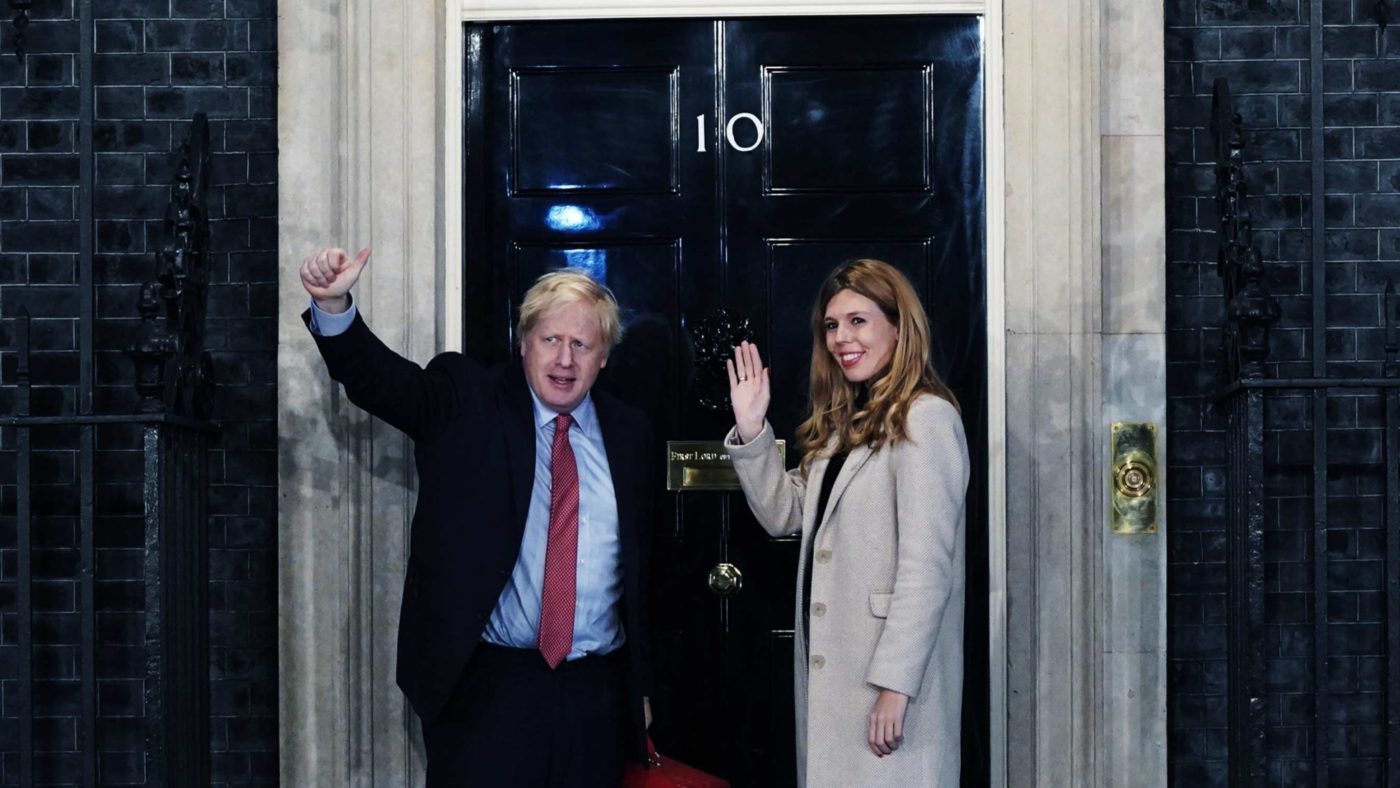It’s been just over two weeks since the death of TV presenter Caroline Flack. In the days following her death, social media was flooded with the hashtag #BeKind – urging people to be nicer to each other and stop hurling abuse at random strangers.
The campaign looked positive and for a brief moment provided some much-needed optimism about how interactions on social media, in the media, and in real life, might evolve into something resembling respectful discourse.
The last few days or so suggest, however, that any new-found kindness has its limits. To qualify for tolerance and respect, you must first be seen as ‘deserving’.
Over the weekend, Carrie Symonds announced that she and Boris Johnson were expecting their first child together. Many of the people who rightly called out the press for hounding Meghan Markle whilst she was pregnant were the ones tweeting horrible jokes at Carrie’s expense (if you don’t believe me, just put ‘Carrie baby’ into Twitter and look at the results). Then there was the usual political pointscoring, typified by this tweet from Labour MP Jess Phillips.
In some cases, people may just have afforded little thought to the fact that this could have a negative impact on a woman managing pregnancy for the first time. However, for others, their dislike for the Conservative party and for Boris Johnson, meant that they believed their appalling comments were justified – that Carrie and Boris deserved the abuse.
This kind of reaction is a fine example of what you might call subjective morality – the idea that behaviour is not objectively right or wrong, but depends on who it’s aimed at. When coupled with the often visceral tribalism of some people involved in politics, things can get very ugly indeed.
It’s something I’ve encountered in my time as a parliamentary candidate, when I’ve been spat at, had things thrown at me and been called a c*nt on more times than I care to remember – often from people who told me they were voting for another party because they were, unlike me, ‘good people’.
The list of these kind of encounters is long and undistinguished: to take one example, look at the way Jacob Rees-Mogg has been harangued by self-righteous anti-Brexit protesters, even in the company of his young children. Likewise pro-Brexit demonstrators shouting “traitor” at pro-European MPs. Nor is this even case of the ‘means justifying the ends’, since this kind of behaviour is at best pointless and usually completely counter-productive.
There’s a real sense of hypocrisy here in the way certain people are treated too. For years, Priti Patel has been depicted as ruthless and scheming, and none of the rules that normally apply to powerful and successful women seem to apply to her, the daughter of immigrant shopkeepers who has risen to one of the great offices of state.
The same people who are quick to react when Diane Abbott is subjected to dreadful racist and misogynistic abuse seem to have no problem with Patel being portrayed as “perma-smirking” or “above her station”. Surely if people can acknowledge that some of the criticism levelled at Abbott was fuelled by racism and sexism, they should be able to call out the same – even if it is Priti Patel at the receiving end of it.
The same kind of subjective approach happens to people of colour who adopt the “wrong” political views. Ethnic diversity is great, as long as they aren’t rightwing, seems to be the message from some on the left. Last year, when the Prime Minister appointed the most ethnically diverse cabinet in history, including Sajid Javid, the son of a bus driver, the editor of Corbyn fansite The Canary tweeted that “Someone from a minority group who chooses to serve in a far right government is no longer a person of colour. They’re a turncoat of colour”.
We can see the same pattern when it comes to perpetrators too. Relatively little was made of Sadiq Khan referring to other Muslims as ‘Uncle Toms’, for instance, when you can be quite sure if a Tory had said something similar the left would be up in arms.
More recently, the cases of John Bercow and Priti Patel have exposed the same kind of double-standards. When the former speaker was repeatedly accused of bullying staff, Diane Abbott tweeted that it was “unlikely” he had bullied others, while many who had long disliked Bercow assumed the allegations were true. Likewise when it comes to Patel, her critics leap to the conclusion that she is a bully, while her allies assume she’s done nothing wrong. In both cases it’s rather unlikely that either side has access to the full facts of the matter.
So whilst it is undoubtedly positive that people are urging others to “be kinder” to others, I hope we can remember to extend that kindness to those with whom we disagree. Dehumanising slurs, and the lack of responsibility that people can exploit online, are quickly leading us down a dangerous path where we can expect abuse from others, so long as they are convinced of their own righteousness.
The irony is that the same people who self-identify as compassionate and open-minded show through their actions that their compassion is selective. The true test of righteousness is not shouting loudest for your own side, but being able to tolerate people whose views you fundamentally disagree with. Be kind should be an axiom we try to live by, not a cliche that goes out the window the moment an enemy hoves into view.
Click here to subscribe to our daily briefing – the best pieces from CapX and across the web.
CapX depends on the generosity of its readers. If you value what we do, please consider making a donation.


